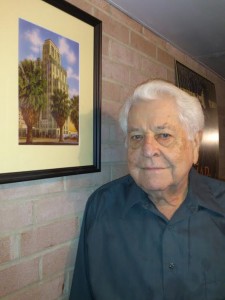Bio:
Christine is a professor of psychology who has conducted one of the longest running longitudinal studies here at UC. She is retiring in the next two years, although she has a considerable amount of data not fully published. She has devoted her time to the understanding of the psychophysiology of headache, the nature of stressors that so often precede headache, and the behavioral patterns with concomitant emotions that can lead to headache. Much of these data are presently stored in a remote storage facility at her personal cost. Christine is obligated to store the data per funder and her professional association (American Psychology Association) requirements. The timing of the Scholar rollout could not have come at a more opportune time for Christine. She has been working with her students to decide what data she can publish in her timeframe and what she will digitize and curate for future researchers to analyze and publish as part of their research.
Highlight of EA’s research interests
Christine Hovanitz’ research interests are the psychological mechanisms underlying regulation and dysregulation of physiological states; the theological and philosophical origins of the mind/body dualism; and the psychophysiological, affective, and motivational mediators of psychological and physical disorders. Her teaching interests lie in Health Psychology, Personality, and Personality Assessment.
Why are you considering using Scholar and what value does it have for your current and future research?
It brings a large body of research to a useful venue and maintains it so it continues to have value. These data might have been destroyed if it were not archived. These data ease research for other researchers who want to address new questions. These data are in a ready to analyze state and will be readily available to researchers just getting started. There is no need to apply for a grant, the data is there. The availability of the data reduces financial costs and saves years of valuable research time. The studies I undertook were very long in duration and involved screening thousands of potential participants. We took years, literally, to identify participants for a single study for this small specialty area. Researchers today do not have the kind of time that I did because RPT requirements put pressure on researchers to produce at a much faster pace as well as to impact a larger research community. During my tenure, I could conduct good research without having to factor in fame and prestige factors. I had time and resources here to consider what was really important to understand; I had treated patients with chronic severe headache prior to arriving at UC, but not the ability to conduct that research at the same time. We were able to successful intervene with psychosocial treatments, but we really did not know why they worked. This research program focused on that problem. With a small number of similarly-minded national and internationally located researchers, we met at annual meetings to fuel our imaginations and to give us much needed encouragement as well as intellectual excitement.
My colleagues, for the most part, have retired. Yet good data has no expiration date. This is true for especially for data that addresses theoretical research questions. We established a foundation on which the intricacies of the cognitive, motivational, emotional and physical interact to maintain (or fail to maintain) head pain or pain-free states. The research helps explain the efficacy of relaxation and cognitive behavioral therapies for headaches. While some of this research has been federally funded, today there is little interest in funding research in the psychosocial aspects of headache (even though psychological interventions are recommended by the AMA as efficacious). The lack of current interest may not be permanent; interest may very well resurface. If these data are made available, additional analysis can be done quickly. This will save time and expense and is the ethical approach. Data began to be collected in the early 1980’s, and was completed in 2013. Thirty years of data is a lot of data.
A large number instruments, questionnaires and psychophysiological measures we used are in widespread usage. This data almost certainly is of value for research purposes that do not involve headache.
Submitting these data to Scholar would give increased access and extend its impact. Though I do not plan to continue my research in headache much beyond the date of my full retirement, I can still give to the gift-economy of science by making raw data and my works available. This extends my impact and helps future researchers
What value does it have for current and future teaching needs?
Students in psychology as well as other departments at the university are required to do a capstone project. If they have any interest in a graduate career, they must have completed a research experience at the undergraduate level. Students do not have the time frame to collect data of this magnitude that I had. I feel it is the right thing to do to provide these opportunities to students.
Do you have any additional comments about Scholar?
I really enjoyed our talk. It was very pleasant to look back across the decades and think about the work, in addition to plan for the future.
________________________________________
Scholar@UC preserves the scholarly output of the University of Cincinnati. Use Scholar@UC to preserve your work and increase its accessibility to a global audience. To get started with Scholar@UC, visit scholar.uc.edu or email scholar@uc.edu.

